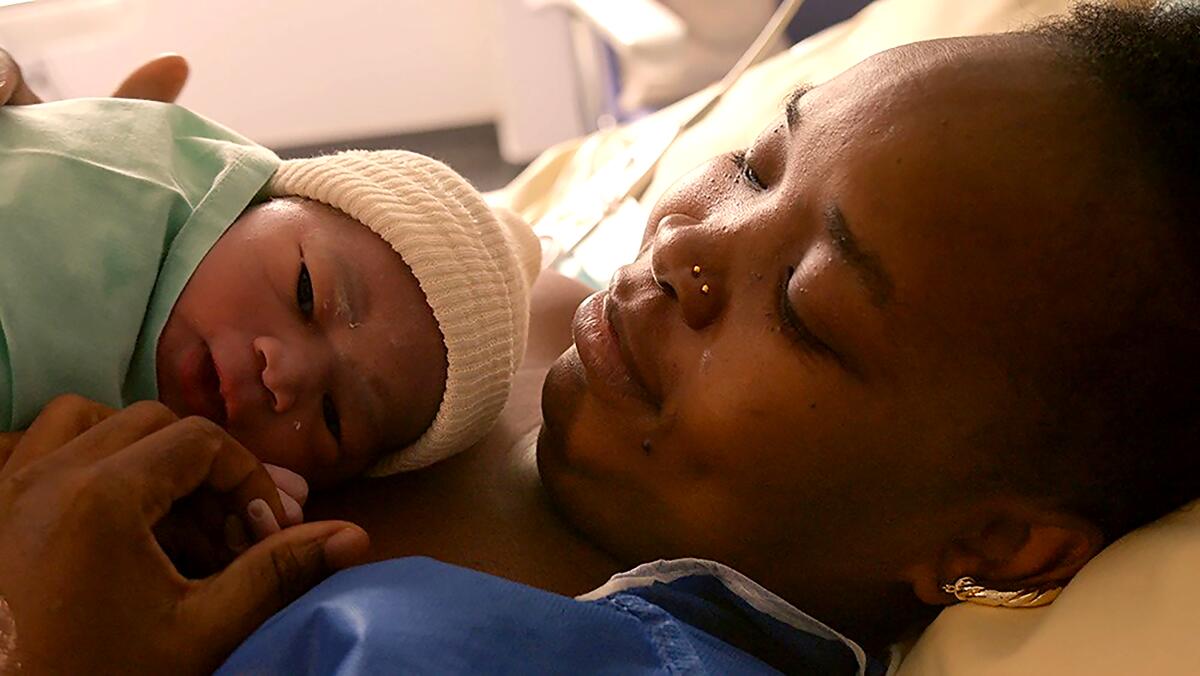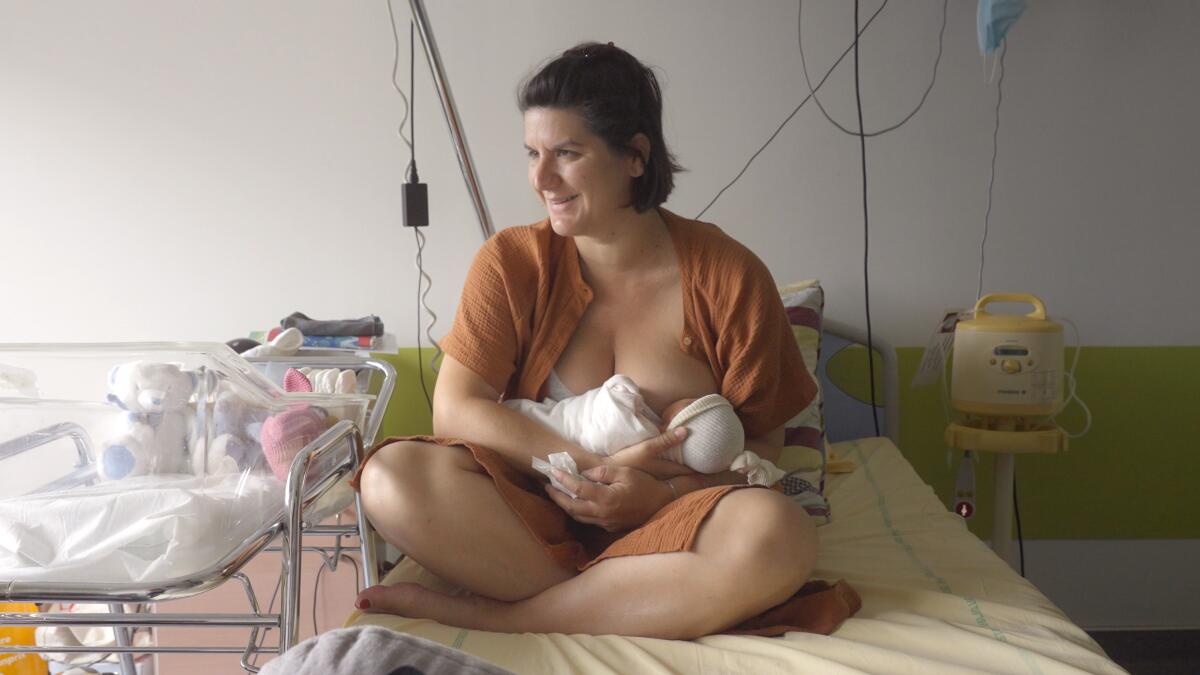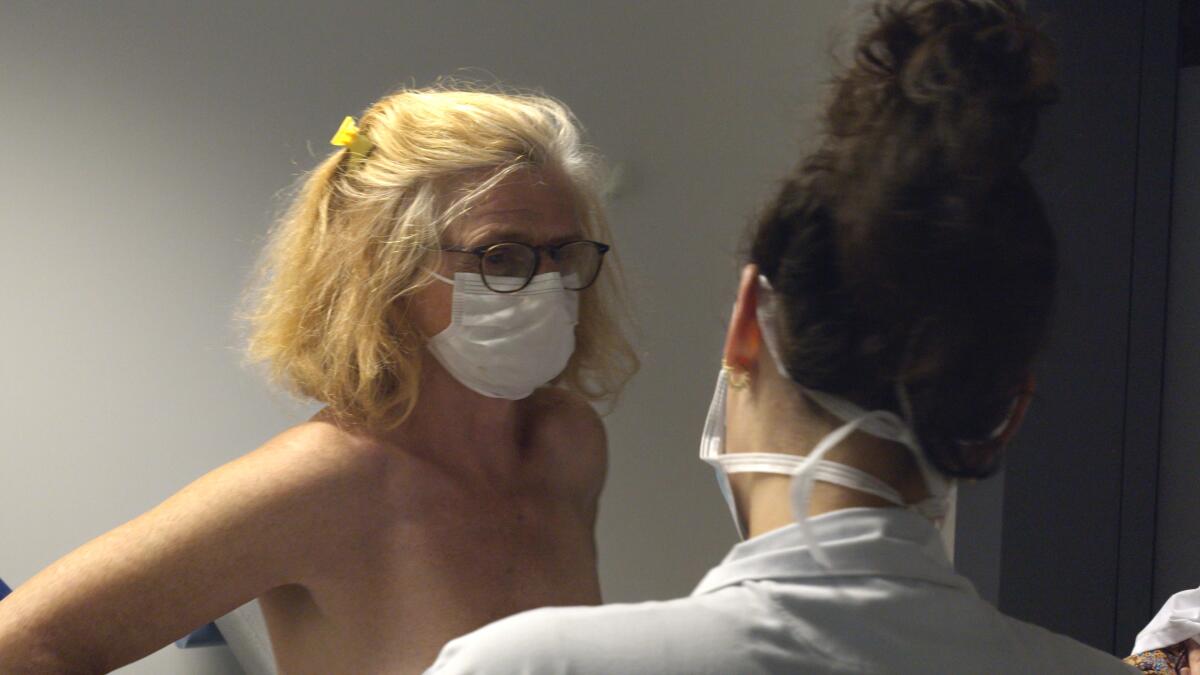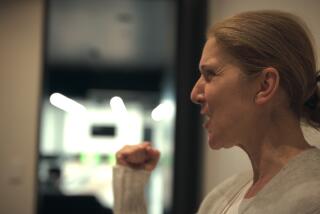Review: The superb documentary âOur Bodyâ puts womenâs healthcare under a microscope

The title of âOur Bodyâ is spoken aloud during its most heated, least typical scene. A group of women are protesting outside a Paris hospital, speaking out about their personal experiences of obstetrical and gynecological violence and calling for greater accountability and transparency. âItâs our body, it belongs to us!â one of them declares, and in that juxtaposition of plural and singular, she cuts to the bracing heart of this boundlessly empathetic documentary. Everybody (and every body) is different, but to fight for oneâs rights â and oneâs health â is to engage in a collective struggle.
No acts of medical malpractice are recorded during âOur Body,â which spends 169 moving, spellbinding minutes roving the halls, exam rooms and operating theaters of the hospitalâs gynecology ward. Training her camera on consultations, examinations, tests and procedures, French director and cinematographer Claire Simon works with a patient, unobtrusive tenderness that seems to echo that of the doctors and nurses sheâs filming. Whether theyâre diagnosing the endometriosis that has caused a young woman severe pelvic pain or discussing IVF options with a couple hoping to conceive, these skilled practitioners dole out their questions and answers, their good news and bad, with a sensitivity that feels like second nature.
Comparisons to the films of Frederick Wiseman are understandable; Simon, whose work (âThe Competition,â âGare du Nordâ) straddles and sometimes merges fiction and nonfiction, has been negotiating them for much of her career. (Her absorbing 2008 drama, âGodâs Offices,â adapted from interviews shot at family planning clinics, feels like a docu-fiction warm-up for this movie.) But âOur Body,â unlike many Wiseman works, isnât really an anatomy of an institution, and the narrative logic that connects one episode to the next is generally clearer and easier to divine.

Working closely with her editor, Luc Forveille, Simon has structured her vignettes roughly in accordance with the arc of life itself. The first several patients we meet are teenagers and 20-somethings, their stories arranged in two-by-two formation: two young women seeking abortions, two transgender men at different stages of hormone therapy. Near the halfway point the movie shifts toward stories of pregnancy and labor; we meet couples trying to conceive, eavesdrop on ultrasound exams, see sperm samples being analyzed, cry with a woman undergoing an ovarian puncture, witness a mother give birth to her third child (âIâm so happy,â she coos, clasping her baby to her bosom) and watch as another infant is delivered by C-section.
That particular operation isnât filmed quite as graphically as the one in âDe Humani Corporis Fabrica,â the other great French medical documentary to have emerged so far this year. That movie was unsparing in its alien-landscape plunge through the bodyâs insides, as well as its sometimes brutally frank perspective on surgeons working their way through frustration and exhaustion. âOur Bodyâ soothes more than it shocks, though with its primary focus on womenâs healthcare and its many face-to-face interactions between patients and workers, itâs no less rigorous or purposeful. It seeks to demystify the bodies we see, normalize the act of seeking medical intervention and remind us of the great swath of humanity â of different ages, colors, genders, shapes and sizes â passing every day through this ward and others like it.
One woman, receiving chemotherapy mid-pregnancy, talks about how it took her a while to realize that her cancer symptoms indicated something more serious than merely routine pain and discomfort: âI thought it was normal for a woman to suffer,â she says, a line that finds a silent echo in many of the experiences we see. Her story serves as a kind of bridge to the movieâs somber later passages, many of them devoted to older cancer patients. In the most quietly extraordinary development, the 68-year-old Simon turns the camera on herself, sitting down with a doctor who diagnoses her with breast cancer. The shock we see on Simonâs face is at least twofold: deep worry about her health, yes, but also astonishment that her story has merged with the others sheâs recording.

That adds yet another personal, possessive dimension to the movieâs title. But while she supplies some ruminative monologue at the start and finish, Simon doesnât allow her diagnosis and treatment to hijack the documentary. Nor does she needlessly underline the issues, including transgender rights and womenâs access to healthcare, that her choice of stories and subjects matter-of-factly raises.
You might leave âOur Bodyâ thinking about the young woman quietly weeping as a doctor reassures her that her pain can be treated with time and close attention or the doctor patiently translating details of a radiation treatment for a non-French speaker. Or perhaps the good-natured, long-suffering cancer patient who tells her caregiver she knew things were hopeless when âI could see that even you were discouraged.â That she seems to be the one offering reassurance in that moment encapsulates this filmâs most beautiful mystery: the intimacy that binds those who give and receive care, a bond both fleeting and indelible.
âOur Bodyâ
Not rated
In French with English subtitles
Running time: 2 hours, 49 minutes
Playing: Starts Aug. 11 at Lumiere Music Hall, Beverly Hills
More to Read
Only good movies
Get the Indie Focus newsletter, Mark Olsen's weekly guide to the world of cinema.
You may occasionally receive promotional content from the Los Angeles Times.











